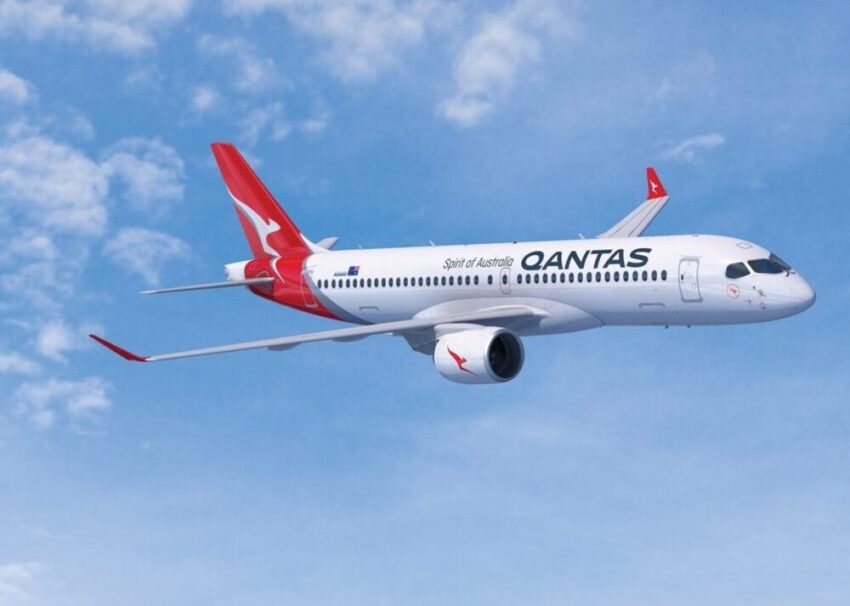Tuesday, August 27, 2024 Qantas recently faced an unexpected situation when a coding error led to the sale of heavily discounted first-class tickets, resulting in a significant number of passengers purchasing these tickets at a fraction of their usual cost. The airline has since acknowledged the mistake and is taking steps to address the situation. To manage the fallout, Qantas has announced that it will either offer refunds or downgrade the affected passengers to economy or business class, depending on their preferences.
The incident has sparked considerable discussion among the affected customers, many of whom were thrilled to snag a first-class experience at such a low price. However, the reality of the situation has led to disappointment as these passengers now face the possibility of not receiving the luxurious service they initially expected. Qantas has expressed regret over the error and is working to provide a fair resolution to those impacted, ensuring that all customers are treated with respect and their concerns are addressed promptly.

This situation highlights the challenges airlines face when dealing with unexpected technical issues, particularly when they impact customer expectations. Qantas is navigating this delicate situation by offering compensation options that aim to maintain customer satisfaction while correcting the mistake. The airline’s approach will likely influence customer perceptions and loyalty moving forward, as they strive to balance financial realities with customer service commitments.
As Qantas works to resolve this issue, the airline industry as a whole may take note of how such errors can be managed to avoid similar situations in the future. The outcome of this incident will serve as a reminder of the importance of robust systems and clear communication with customers, especially when errors arise that affect their travel plans. On Thursday, a significant error on Qantas’ website led to around 300 travelers swiftly securing return flights between Australia and the United States at an astonishing 85% discount on the usual first-class fare.
This unexpected opportunity saw passengers jumping at the chance to experience the luxury of first-class travel for a fraction of the cost, booking their flights before the mistake was discovered and corrected by the airline. The moment the erroneous offer went live, it created a surge of excitement among savvy travelers who recognized the incredible deal. Within a short time, hundreds of bookings were made, leaving Qantas with the daunting task of addressing the aftermath of the pricing glitch.
The situation quickly became a hot topic among those who had managed to take advantage of the offer, with many eagerly anticipating a first-class experience at an unprecedented price. However, the airline soon realized the error and faced the challenge of rectifying the situation without alienating its customers. Qantas has since been working to find a solution that balances the need to correct the mistake with maintaining customer goodwill.
The airline’s response to this incident will be closely watched as it navigates the delicate balance between upholding its pricing policies and addressing the expectations of those who secured the discounted fares. As this story unfolds, it underscores the importance of accuracy in online pricing and the potential consequences of even a brief lapse in oversight. For Qantas, this incident serves as a reminder of the critical role that technology plays in managing customer relations and the swift action required when things go awry.
The resolution of this issue will likely influence future policies and practices, not just for Qantas but across the airline industry. For about eight hours, customers had the opportunity to purchase first-class tickets at a mere fraction of their usual cost, paying just a few thousand Australian dollars for flights typically priced at over AUD 20,000 (£10,000). These tickets promised the full first-class experience, including premium amenities such as whiskey and champagne, an à la carte dining menu, and the comfort of a memory foam mattress with a personalized “pillow menu” for an unparalleled in-flight rest.
However, Qantas’ terms and conditions clearly state that in cases where a pricing error is reasonably apparent, the airline reserves the right to cancel the booking and issue a full refund. This clause is now being invoked as Qantas addresses the unexpected situation, leaving customers who took advantage of the deal uncertain about whether they will get to enjoy the luxury experience they thought they had secured. Qantas has acknowledged that even passengers who booked business class tickets during the recent pricing error still paid an astonishing 65% less than the usual fare.
This pricing mishap allowed travelers to secure premium seats at a fraction of their typical cost, igniting a mix of excitement and uncertainty among those who managed to purchase tickets during the brief window of opportunity. While Qantas has yet to finalize its response to the situation, the incident has drawn attention to the broader issue of airlines mistakenly offering steep discounts. This isn’t the first time the airline industry has grappled with such errors.
In 2019, Cathay Pacific made headlines when it accidentally sold $16,000 business-class seats for just $675. In that case, the airline decided to honor the tickets, much to the delight of the passengers who benefited from the unexpected windfall. The decision was praised by many as a gesture of goodwill, though it undoubtedly came at a significant financial cost to the airline.
However, not all airlines choose to honor mistakenly discounted tickets. In 2018, British Airways found itself in a similar situation when it mistakenly sold tickets to Dubai and Tel Aviv for just £1 instead of the usual £200. Unlike Cathay Pacific, British Airways opted to cancel the tickets, leaving many would-be travelers disappointed.
The differing approaches taken by airlines in response to pricing errors highlight the complex considerations involved in such decisions, balancing customer relations against financial implications. For Qantas, the current situation presents a challenge in determining the best course of action. While honoring the tickets could enhance the airline’s reputation for customer service, it would also result in substantial financial losses.
Conversely, canceling the tickets, while legally permissible, could lead to negative publicity and customer dissatisfaction. The decision will likely have long-term implications for Qantas’ brand image and customer loyalty. As the airline industry continues to evolve in the digital age, these incidents serve as a reminder of the importance of accurate pricing systems and the potential consequences of even minor errors.
Whether Qantas ultimately chooses to honor the tickets or not, the situation underscores the need for airlines to carefully consider their approach to handling such mistakes, with an eye toward both short-term impact and long-term customer trust..


















